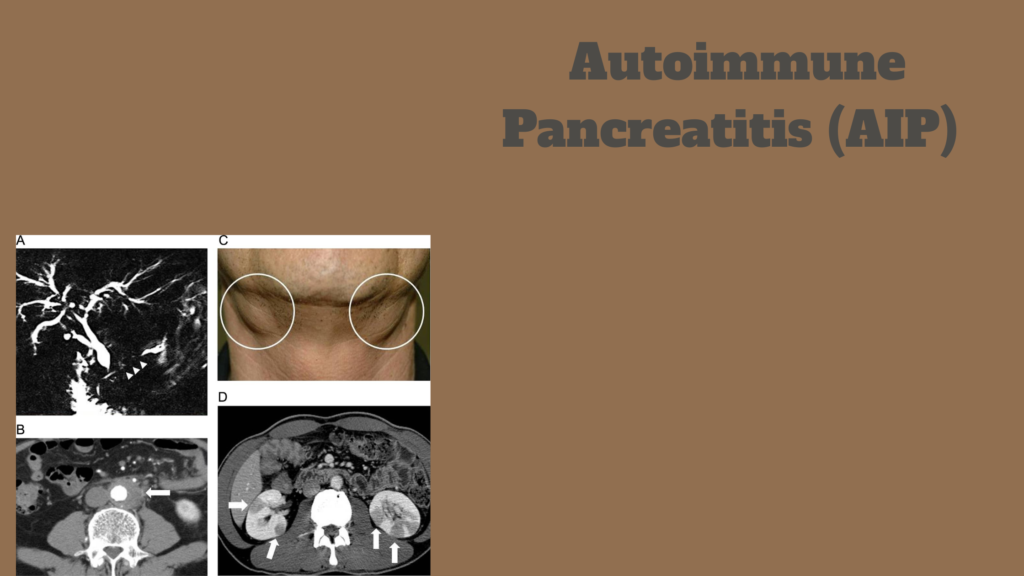
Autoimmune Pancreatitis (AIP) is a rare form of chronic pancreatitis where the body’s immune system mistakenly attacks the pancreas, leading to inflammation and potential damage. It often mimics pancreatic cancer in its presentation, making accurate diagnosis crucial.
🔬 Types of Autoimmune Pancreatitis
- Type 1 (IgG4-Related Disease):
- Prevalence: More common, especially in older adults.
- Characteristics: Associated with elevated IgG4 antibody levels and can affect multiple organs, including the bile ducts, kidneys, salivary glands, and lymph nodes.
- Response to Treatment: Generally responds well to steroid therapy. (my.clevelandclinic.org, pmc.ncbi.nlm.nih.gov)
- Type 2:
- Prevalence: Less common, often seen in younger individuals.
- Characteristics: Typically confined to the pancreas and frequently associated with inflammatory bowel disease (IBD).
- Response to Treatment: Also responds to steroids but has a lower relapse rate compared to Type 1. (my.clevelandclinic.org)
🩺 Symptoms
- Persistent upper abdominal pain, sometimes radiating to the back.
- Jaundice (yellowing of the skin and eyes).
- Unexplained weight loss.
- Fatigue.
- Digestive issues such as diarrhea or nausea.
- Presence of pancreatic masses or cysts. (my.clevelandclinic.org)
🧪 Diagnosis
Diagnosing AIP involves:
- Blood Tests: Elevated serum IgG4 levels can be indicative.
- Imaging: CT scans or MRIs may show a “sausage-shaped” pancreas.
- Biopsy: Histological examination revealing lymphoplasmacytic infiltration.
- Response to Steroids: Significant improvement after steroid treatment supports the diagnosis. (medicoverhospitals.in)
💊 Treatment
- First-Line Therapy: Corticosteroids like prednisone are commonly used to reduce inflammation.
- Steroid-Sparing Agents: In cases of relapse or steroid resistance, medications such as azathioprine, mycophenolate mofetil, or rituximab may be considered.
- Biliary Stenting: In cases of obstructive jaundice, a stent may be placed to relieve bile duct blockage.
- Monitoring: Regular follow-up to assess for relapses and manage complications. (medicoverhospitals.in, healthline.com, my.clevelandclinic.org)
🧠 Prognosis
- With appropriate treatment, many individuals experience remission and can lead normal lives.
- Relapses are more common in Type 1 AIP and may require prolonged or repeated steroid therapy.
- Long-term monitoring is essential to detect and manage any complications or recurrences. (mayoclinic.org)
If you or someone you know is experiencing symptoms suggestive of AIP, it’s important to consult with a healthcare professional for proper evaluation and management.
